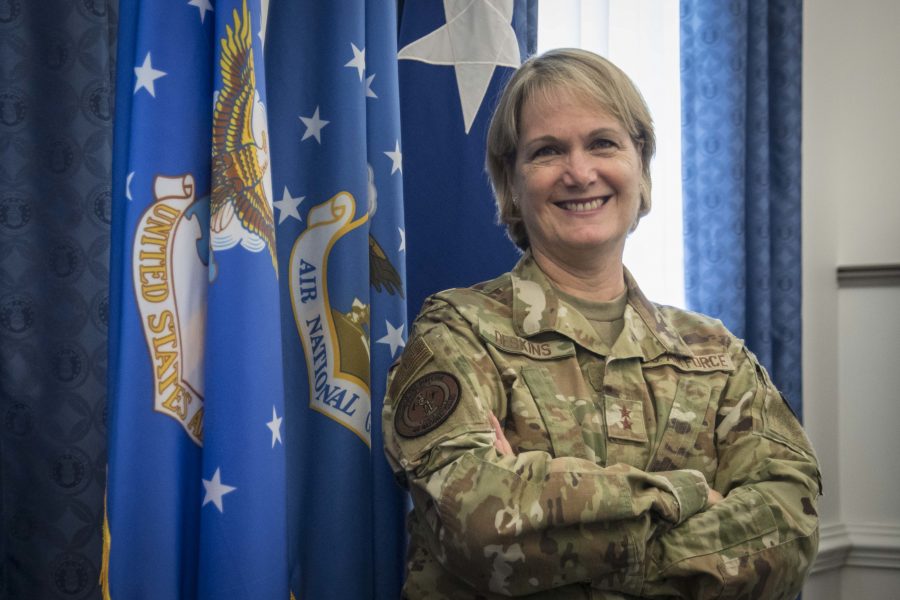Maj. Gen. Dawne L. Deskins recently became the first woman and non-pilot to become the deputy director of the Air National Guard.
But while she feels “very fortunate” for the chance to be a professional pioneer, her longtime priority has been doing the best possible job and being recognized for that effort—rather than for the boxes she might happen to check off in the process, she told Air Force Magazine.
“Early on in my career, I remember just wanting to be judged on my abilities, my experience, and how well I did my job,” she said in a Sept. 23 ANG press release. “I felt that my gender should be irrelevant.”
Deskins commissioned into the Active-duty Air Force as a 2nd lieutenant in 1984, having gone through the Air Force Reserve Officer Training Corps at Cornell University while studying at nearby Ithaca College.
USAF first assigned her to Tyndall Air Force Base, Fla., to learn the basics of becoming an air weapons controller at the 325th Tactical Training Wing.
Deskins went on to serve in roles such as weapons director, weapons assignment officer, and instructor—bouncing between Tyndall and then-McChord Air Force Base, Wash., and obtained a master’s degree in management from Florida State University—until she transferred into the Air National Guard in 1995 and began working for the Northeast Air Defense Sector (later renamed the Eastern Air Defense Sector).
At the Eastern Air Defense Sector, Deskins served in various capacities—including as its first female commander—until March 2014. Once she reached the sector’s top job and started approaching her mandatory separation date, she intended on retiring. However, Air National Guard leadership had other plans.
“Then, the Air National Guard director at the time offered me the opportunity to come out to Washington, D.C., to work the Air National Guard’s Sexual Assault Prevention and Response program and promote to one star,” she said in the release. “That was in 2014.”
Deskins took the assignment, and then future taskings that included heading up air, space, and cyber operations for the ANG Readiness Center at Joint Base Andrews, Md.; a stint as U.S. European Command’s deputy director for partnering, security cooperation, and missile defense; and, most recently, serving as ANG’s director of manpower and personnel, a role in which she helped the organization tackle issues including suicide within its ranks.
She formally stepped into ANG’s number two spot in July.
With age, Deskins said she’s come to understand why her personal role in increasing female representation among ANG ranks matters. Giving women “a point … to be able to aspire to” is a responsibility she takes “quite seriously,” she said in the interview.
“I know when I looked up, you know, long ago, there were nothing but men in the positions that I could tell, so I’m hoping that that maybe lets some women know that there isn’t a ceiling,” she added. “They can go as far as they wanna go.”
